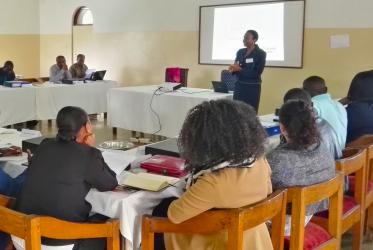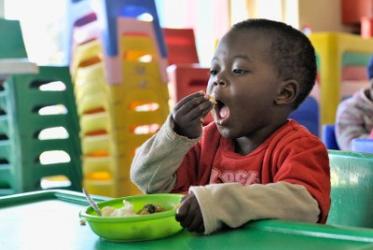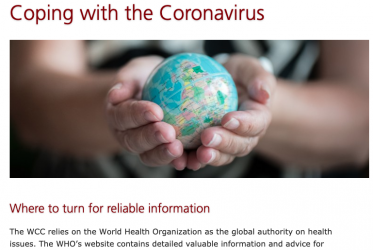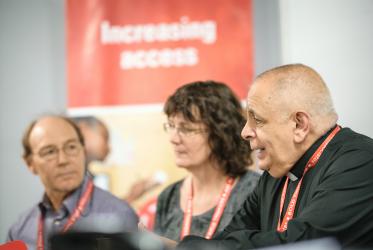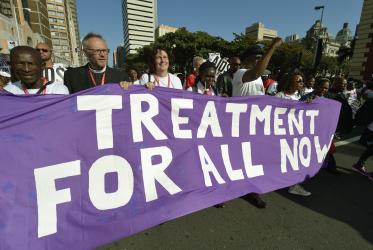Displaying 21 - 40 of 52
African youth takes stand at first ever WCC Eco-School
03 August 2017
G7 must address famine
22 May 2017
Applications open for WCC Eco-School
10 May 2017
UN discussion focuses on women, HIV and property rights
21 March 2017
“It’s time to be brave, to form diverse partnerships”
02 March 2017
Zambia: “On HIV, we do not compete. We work together.”
20 October 2016
Kenya: Voice of faith communities crucial in overcoming HIV
14 October 2016
AIDS 2016: Coverage of faith response to HIV
22 July 2016

